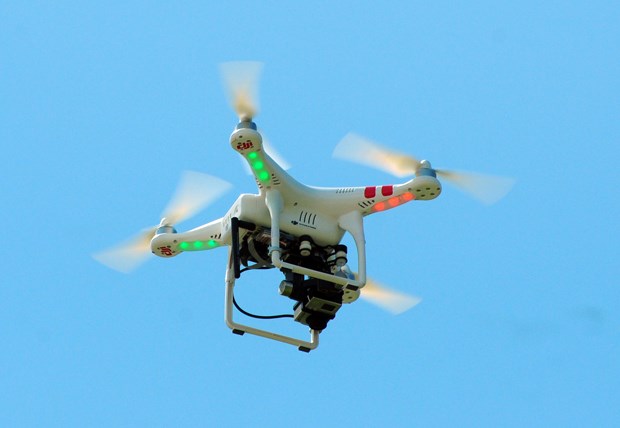Last month a Deep Cove couple encountered an unwelcome peeping drone hovering outside their Panorama Drive home.
It’s hard to say exactly what the Unmanned Air Vehicle (UAV), a.k.a drone, was up to. Taking aerial photos for a luxury home listing? Surveying the waterfront? Or was it something else?
Whatever the intent, the incident raises privacy and safety concerns about drones as they become increasingly more ubiquitous in the skies above.
So, who’s keeping tabs on the drones?
Transport Canada regulates the use of drones, and if an incident is reported the department will investigate to see if the operator followed proper rules and safety protocol.
Police can also investigate whether Criminal Code and privacy laws have been broken.
While this is still relatively uncharted territory and it may be hard to prove laws have been broken, police still encourage residents to call the non-emergency line if they’ve had unwanted flying visitors buzzing around their personal space.
Drones are getting more affordable and easier to fly. You can buy one equipped with a camera at a big box store for less than $100 and if it’s being used for personal use and weighs less than 25 kilograms you don’t need permission from Transport Canada to start flying it.
The only stipulation is that you follow certain safety tips, including fly during daylight in good weather; always keep it in sight; respect privacy of others; and don’t fly close to airports, in populated areas or near groups of people, near moving vehicles or higher than 90 metres, or anywhere that may impede first responders.
If the drone is being used for work or research and weighs more than 25 kilograms a special flight operations certificate is needed.
On its website, Transport Canada reminds drone users that they “must respect the Criminal Code, Trespass Act, as well as all municipal, provincial, and territorial laws regarding trespassing and privacy.”
The federal department concedes that an increasing number of Canadians are now flying UAVs, but that doesn’t mean everyone is aware of the rules. In the U.S. plans have been announced for a drone registration system. At the moment Transport Canada is developing stricter regulations to address the growing popularity of UAVs that will likely establish aircraft marking and registration requirements, licensing and training and flight rules. Stronger regulations should happen sooner than later.
Just as you need to pass mandatory testing to get a licence to operate a motor vehicle or boat, operators of these unmanned aircraft should also be required to fully understand the rules and regulations of operating a UAV. They should also be well aware of the consequences for breaking these rules, which can include stiff fines and even jail time, something many recreational operators probably don’t realize.
Drones perform many important functions, from aiding search and rescue teams and police to helping farmers surveying crops, but in the hands of a few misguided pilots the unmanned aircrafts can pose a threat to privacy and safety and sour public opinion about UAVs.
What are your thoughts? Send us a letter via email by clicking here or post a comment below.



